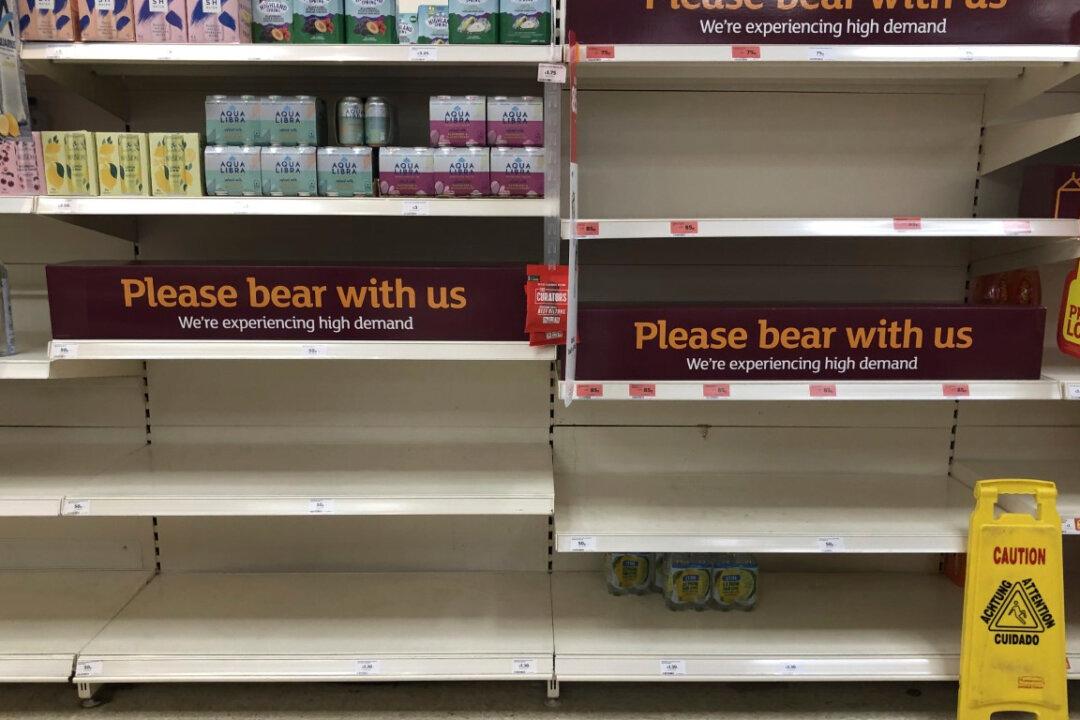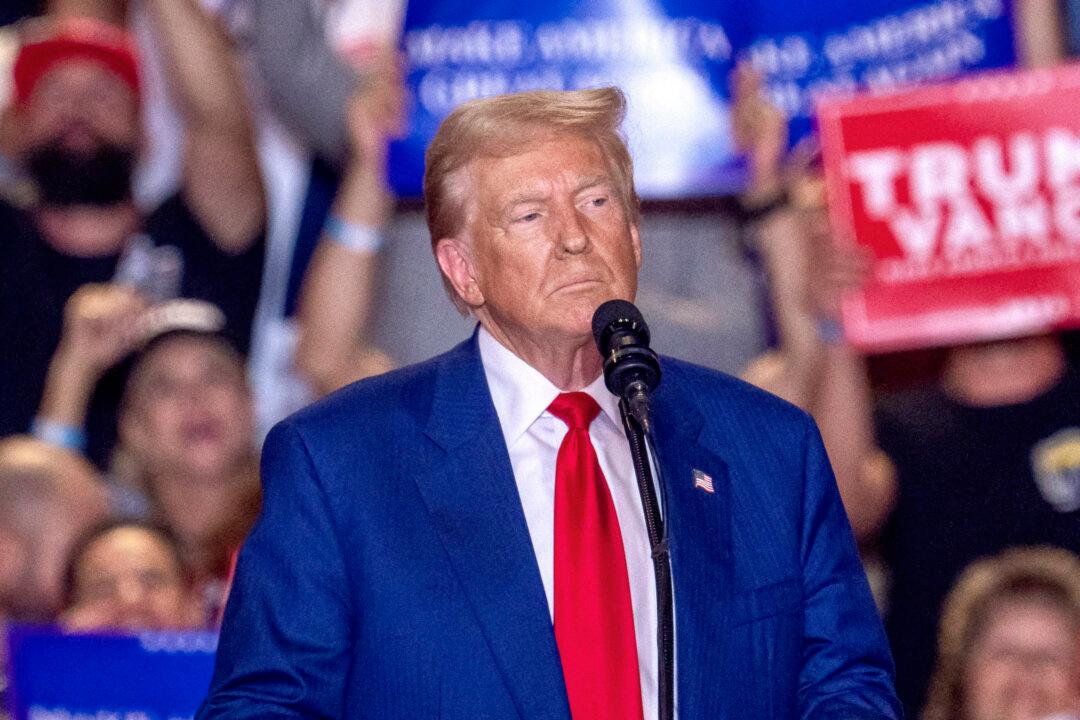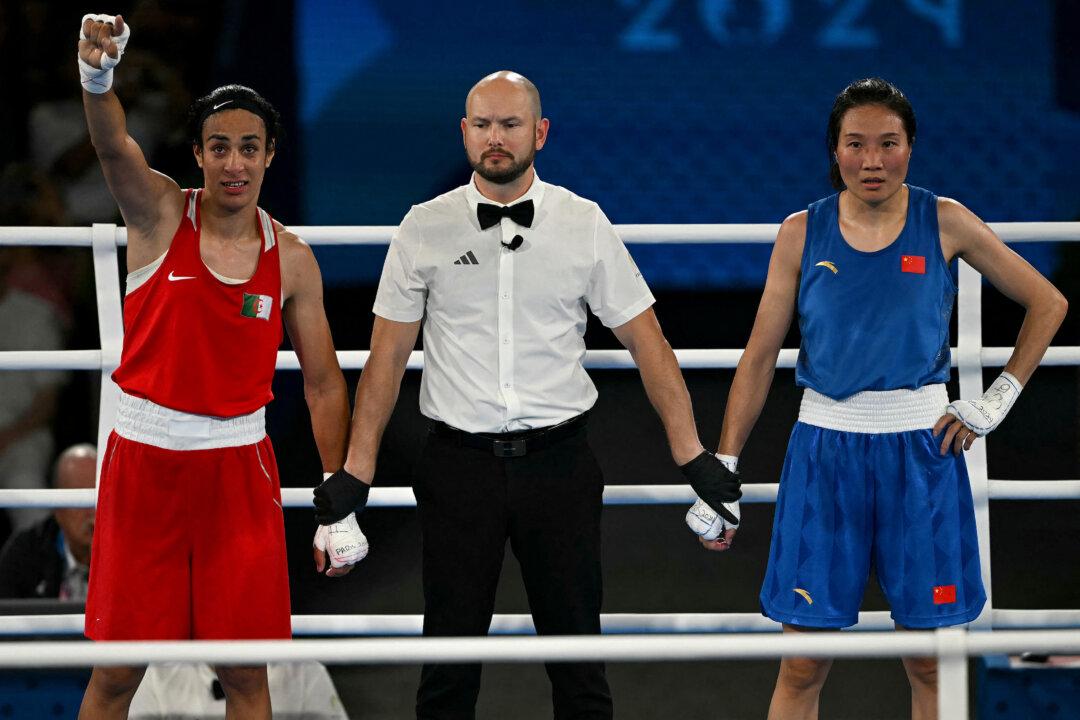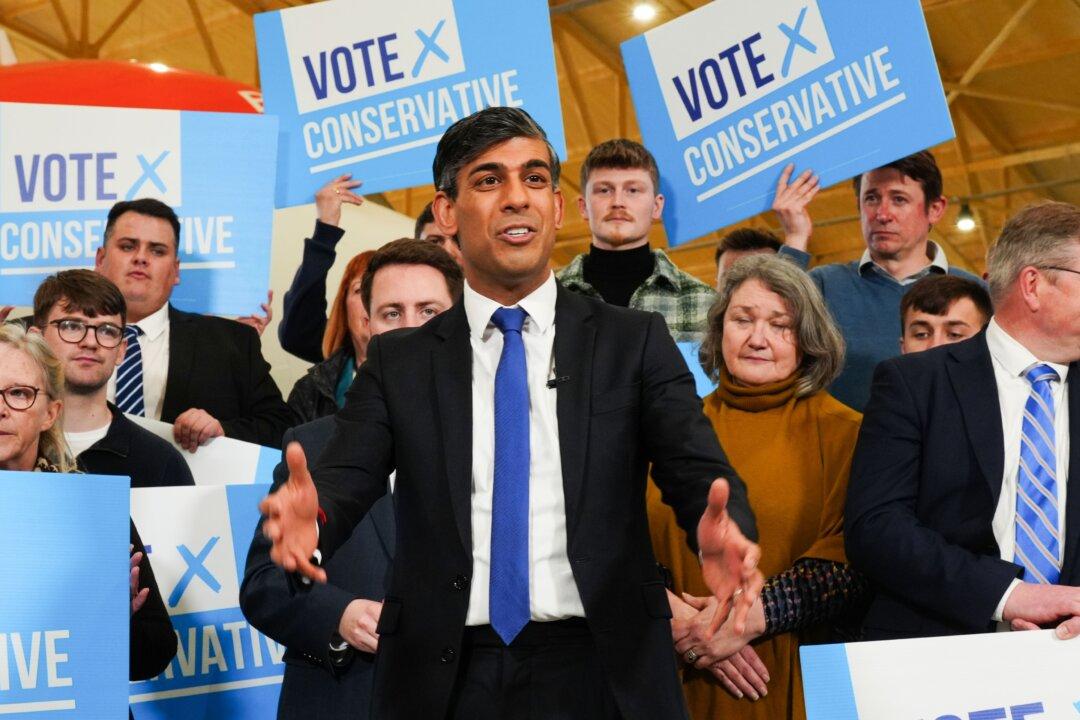The UK government has extended the exemption from self-isolation to around 10,000 “critical” workers amid scenes of empty supermarket shelves, fears of panic-buying, and disruption of public transport.
The scheme will run until Aug. 16, when all double-jabbed people can use negative tests to avoid self-isolation, but pressure is mounting on the government to bring forward the date.




